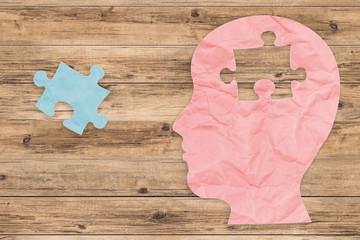
Let’s face it. Everyone out there fears judgment.
There may be people coming up and saying that they welcome feedback, criticism helps them improve, and rebuttals can be seen as a way to alter oneself in better ways. This learning, in real terms is acquired. So, they also learn to leave an appreciation note, verbal or written on whatever kind of feedback they receive.
However, it is undeniable that even a small judgmental statement can have, well certainly will have an impact on a person’s cognition, be it temporary or permanent, depending upon the frequency of rebuttals they receive overtime and the way they deal with it. If surpassed, the judgment will be ‘displaced’ either through word, action or resistance in some or the other way. Well, we all use defense mechanisms, even when we happily display our acceptance towards or ignorance towards a comment thrown at us, which is not likely of what we feel about ourselves.
The need is to understand how the fear of judgment impacts a person, i.e., on what level. Through behavioral analysis, talking cure and counseling, this can be explored. Judgmental attitudes ‘bite’ on peoples’ neck, still everyone judges everyone. I would like to quote two instances here.
I was at a concert, when a friend said, ‘look at that girl in white gown, the one from our high school, isn’t she looking pretty for a change. I countered her, well why are you judging her. This conversation ended on a bitter note with an accusation on me, that I cannot appreciate any good literally. A few days later, the same friend came up to me with a thought lingering in her mind from the ‘concert night’ that happened the other day. She apologized saying, ‘I believe I was jealous of that woman just for no real cause but my own assumptions since the high school days and somehow I didn’t like her, especially when I saw her speaking with my Ex-boyfriend. Ah, there I went questioning her; Don’t you think you judged her? She backfired saying ‘and you judged me too.’
Another instance, where my colleague at work was told by the boss that she is efficient but lack enthusiasm and determination like another colleague of same repute. She was asked to learn and acquire new skills like the other co-mate. She happily displayed acceptance towards the positive statement and made it a point to adjust with the negative statement, made by the boss. However, unconsciously, it became an ‘ego’ issue for her, to try and do better than the other colleague. She succeeded, which we might think it to be positive acceptance and rigorous learning. But, the repeated pattern of fearing a judgment from the boss in comparison to the other hard-working colleague and a repeated pattern to form ‘sugar-coated’ reactions towards other colleagues and later displacing them on others through words, actions and even resistance kept training her brain to adapt to such an attitude.
The impact a perceived judgemental statement can leave a person with, becomes an acquired attitude that can prove to be socially frustrating, and further life threatening at times. It can, without any visible sign make a person insecure, doubtful and impulsive. Therefore, our brain gets trained in repeatedly probing us to pass a comment, covertly or overtly about everything and everybody, either to sub-consciously hide the inferiority felt or to elucidate and display our superior behaviour. So, it’s not only those people who receive statements against their own perception of ‘self’ by others, but also who deliver such a behaviour, verbally or non-verbally. It is significant to note this circle, so pertinent in each and everyone’s life.
My personal experience has led me to use ‘hold the moment’ strategy with many of my clients who face similar things as very useful and effective. May be differently seen or applied in psychological contexts, I developed this ‘hold the moment’ technique as a long term benefit, yet a quick self-help tool that can insightfully develop self-control, handle impulsive reactions and also help us ‘train our brains’ to respond effectively and positively with others as well as ourselves. This technique emphasizes on controlling our movement, in thought or word when we are extremely restless to react at and making sure to let go that situation after that period of restlessness is over, by performing what we intended to at the time our craving for that impulse was high. So basically, we do not force ourselves to break any habit. However, incorporate and develop a new habit of ‘holding the moment’; the moment of pain, anger, despair, impatience; over our habitual pattern of reacting negatively to situations. This reduces the frequency and intensity of being judgmental and gives us space to rationalize our illogical neural tiffs. Being a psychologist, I would say, if we try to analyze what we say, what we do and how other people impact our thought processes, mindfully.
Remember, mindfully, then we can certainly take control of our powerful attitude of judging or being judged, out of fear; also how we perceive any critical evaluations, positive or negative.

